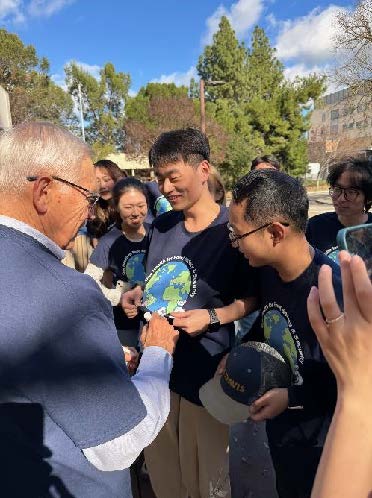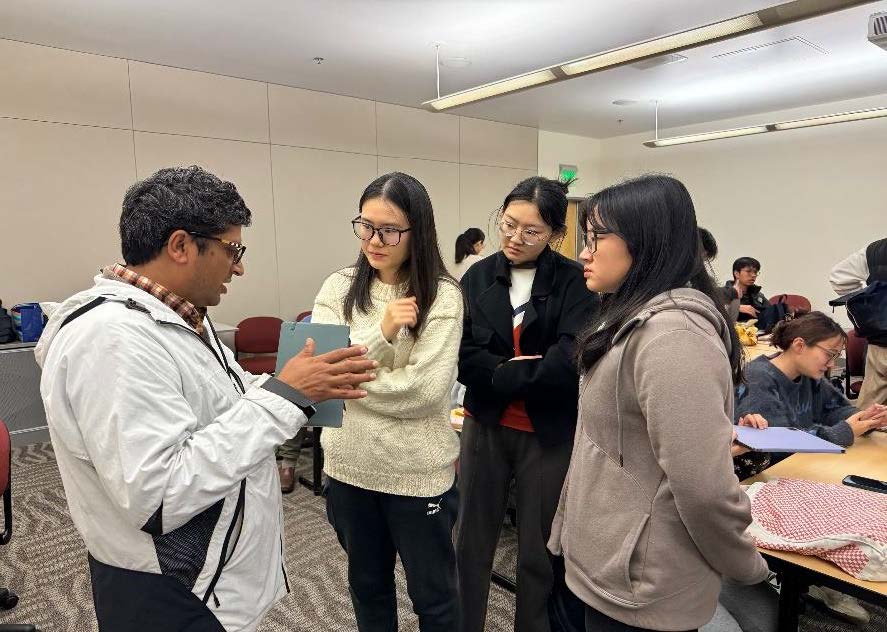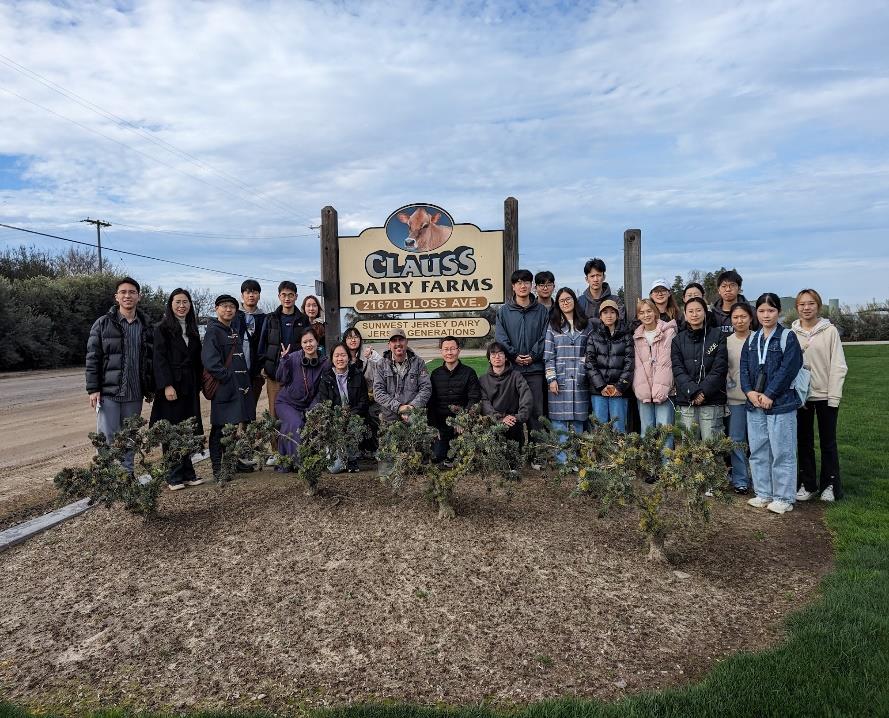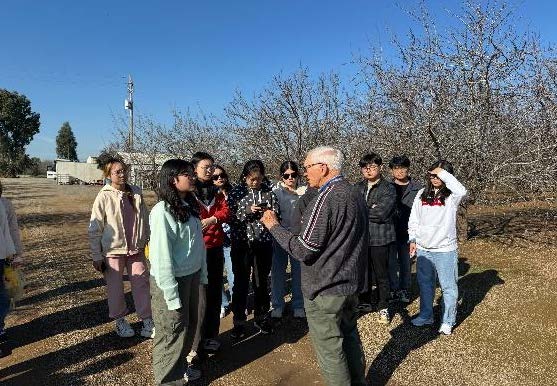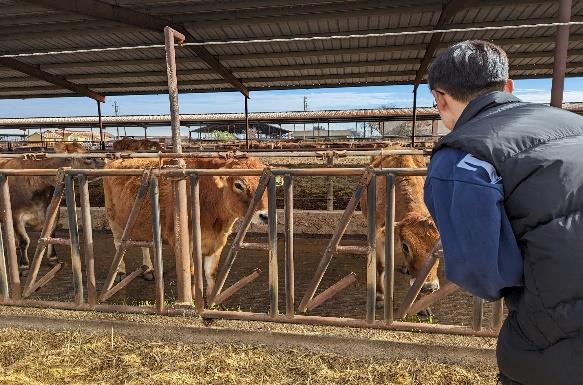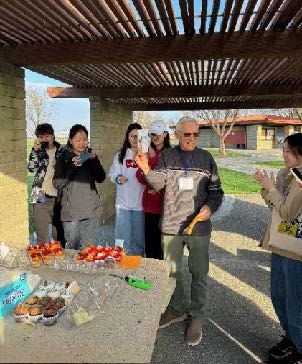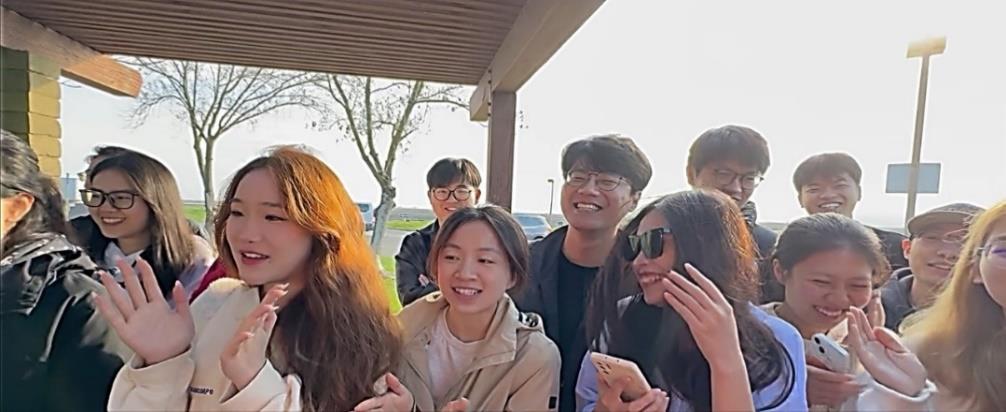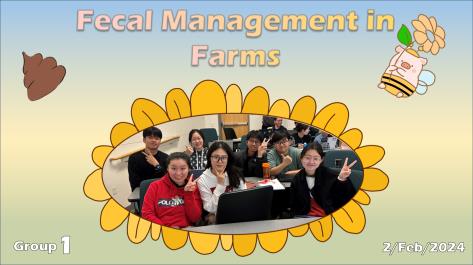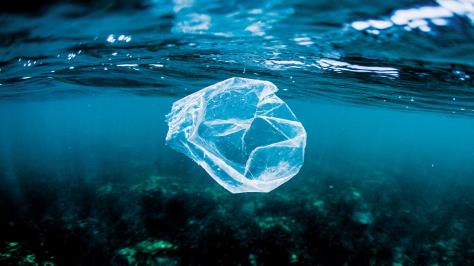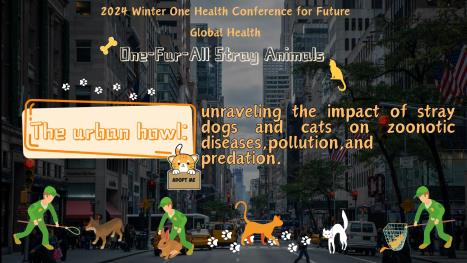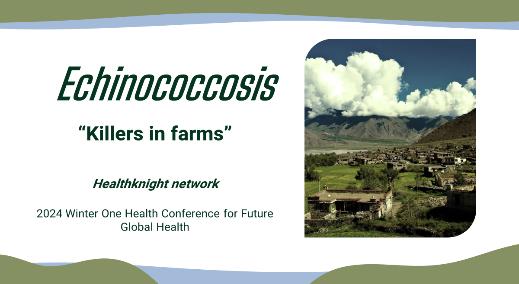By Chris Brunner | June 11, 2024
The group chat for the 2024 Summer One Health Conference is buzzing on WeChat. Students are posting words of encouragement to each other for steering through the visa application process. As we draw closer to the start date of August 5 spirits are high to meet each other in Davis.
This brings my thoughts back to the morning in January when we kicked off the first on-site conference since the pandemic. There were seven online conferences between the first day of the 2024 Winter One Health Conference for Future Global Health and the last time we had gathered in Davis in the winter of 2020.
There was eagerness in the air as Dean Mark Stetter from the School of Veterinary Medicine welcomed the students to UC Davis. He provided an engaging overview of the school’s current achievements and those during its 75-year history. The school, which is notable for applying a One Health approach to addressing critical health concerns on a local and global scale to improve the lives of animals, people, plants, and the environment, served as the ideal setting for the students from Yangzhou University, Henan Agricultural University, Northeast Agricultural University, Zhejiang Agricultural and Forestry University, Nanjing Agricultural University, and Huazhong Agricultural University, to experience student life on the campus of the School of Veterinary Medicine at UC Davis.
Dr. Chang Cai, a UN FAO One Health Specialist Professor at Murdoch University Australia, also gave a warm welcome to the students on opening day and discussed global development and challenges of One Health.
The conference, held January 22 – February 2, was hosted by WIFSS, and co-hosted by the Global One Health Research Partnership (GOHRP) of Nanjing Agricultural University (NAU). GOHRP is comprised of NAU, Massey University, New Zealand, Wageningen University and Research (WUR), and UC Davis.
The conferences are created at a graduate academic level for the learning experience of both graduate and undergraduate students. Innovative and effective team-building exercises address such issues as environmental contamination, habitat use conflicts, biodiversity loss, emerging infectious diseases, antimicrobial resistance, and ecosystem function degradation.
Team Building
UC Davis team facilitators Peerawat Chintrakulchai, a PhD candidate in Epidemiology; Shadira Gordon, DVM, MPVM, and PhD candidate in Epidemiology; Marta Carreño Gútiez, a PhD candidate in Epidemiology; and Siqi (Gigi) Wang, BVM, MPVM, guided their teams Plastic Surgeons, One-fur-all stray animals, Health Knight Network, and Symptom through investigative case studies and preparation for final-day group presentations that identified complex problems impacting public health, animal health, and the environment and offered One Health approaches for short and long term solutions.
Photos by Chris Brunner
Team activities are one element of WIFSS’s 3-fold mission for One Health education, to raise awareness, encourage team building, and inspire a call to action. Team discussions and assignments play a fundamental role in students gaining confidence in expressing their opinions. The students’ application of taking an interdisciplinary approach to solving complex problems is at the heart of addressing critical health concerns on a local and global scale.
“We see our team building exercises having a lasting impact on the students,” says Dr. Bennie Osburn, Director of WIFSS Outreach and Training.
Case studies an exercise in teamwork
Lectures and Field Trips
Through concerned and enthusiastic leadership from renowned professors from across the UC Davis campus, and subject matter experts, WIFSS plants the seeds of imagination for discovering the solutions to leading environmental and food safety issues.
Lectures, combined with hands-on field trips help students connect the dots between people, animals, and the environment.
Awareness is critical to understanding complex problems at the interface of people, animals, and the environment, followed by how it happens, then what can be done to prevent it happening in the future.” says Osburn.
Field trips to a dairy facility, and to an almond orchard and processing facility provided hands-on learning experiences and brought to life the case studies of an increase in mastitis in a dairy herd, and a Salmonella enteritis outbreak caused by consumption of almonds.
Final Reports
Final reports showcased the teams’ multidisciplinary collaboration skills as they delivered reports on 1) Fecal Management in Farms; 2) Tiny but unignorable: Microplastic; 3) The Urban Howl: unraveling the impact of stray animals on zoonotic diseases, pollution and predation; and 4) Echinococcosis “Killers in Farms.” The reports described the One Health problem, identified the factors that are combining to cause the problem, and proposed short-term solutions that may address the most harmful impacts of the problem, as well as long-term solutions that may address the problem over time. Reports closed with a call-to-action, with some promoting the the organization of a One Health Club to help raise awareness.
Symptom
An enormous amount of plant and fecal waste from animals, people and plants are returned to the soil in the ever-ending recycling of these products to enhance future natural plant and food production. This initiative calls for a better understanding of the natural process and the impact of potential disruptors such as antibiotics, heavy metals, chemicals etc. which are added for the purpose of controlling unwanted microbial or plant competition in the ecosystem. Once these factors are better defined and understood, alternative natural systems may be applied for a more sustainable and balanced ecosystem for people, animals and plants in our shared environment.
Plastic Surgeons
Awareness continues to grow about the huge amount of microplastics contaminating ecosystems. Microplastics are in aquatic, marine and terrestrial systems including plants, animals and people. Many microplastics are derived from petroleum products and their small size escapes detection. The impact of microplastics on biological and physiological systems is not fully understood, it suggests that multidisciplinary teams need to be assembled to determine the potential impacts on health of ecosystems including animals, people, plants and the environment. Until more is known about the potential impacts on biological and physiological systems, it is recommended in the short term to continue reducing the use of existing products through recycling programs and initiating an evaluation of the potential consequences of the accumulation of these products on natural biological and physiological systems to assure for a safer and healthier environment for people, animals and plants.
One-fur-all stray animals
Urbanization has brought issues with the increase of feral companion animals and the potential impact that this has on the health of society in general. Lack of awareness of the economic costs of shelters and the potential for zoonotic diseases and their spread, accumulation of feral waste, predation upsetting natural biodiversity and introduction of invasive species are some of the concerns. An epidemiological/economic analysis of these issues would be of value for addressing this ever-increasing dilemma and it could serve to better address the needs for planning and managing the future challenges that are facing the dwellers in urban areas of the country.
Health Knight Network
Parasitic diseases such as echinococcosis are zoonotic diseases primarily affecting people in poor countries of the world. Fecal shedding of eggs and larvae from the adult parasite as well as the poor hygiene practices of people who handle the dogs, contaminates the grazing lands. To better prevent these infections, it is important to educate the sheepherders and other people handling the dogs about the consequences of failing to deworm the dogs periodically, and about the benefit of practicing good personal hygiene after handling the dogs. The call to action of educating these people and providing worming medication can eliminate serious incapacitating disabilities to people exposed to the parasite larvae.
Certificate celebration and fond farewells
A sense of relief filled the room as the final report was delivered and the applause died down. Each team had worked together since the first day of the conference for this final achievement. It was a time of celebration as the students received their certificates of completion. Following a pizza party, group photos, chatter and laughter, the students left to spend time hanging out with the new friends they had made at the conference. They were up early the next morning to meet the bus for the trip to the airport where they boarded the plane for the flight home. It was a time of mixed emotions as we bid fond farewells that Saturday morning.
For nine years I have welcomed students on their arrival and hugged them goodbye as they departed. There was a span of several years that were only virtual hugs online, but with each conference there is always a tug of the heart strings as we say our goodbyes.
I know that the 2024 summer conference will kindle new friendships and plant seeds for future professional collaboration. WIFSS One Health conferences will continue to deliver one-of-a kind educational opportunities to this generation that will work together to change the world with One Health approaches to solve complex problems at the interface of people, animals and the environment.
